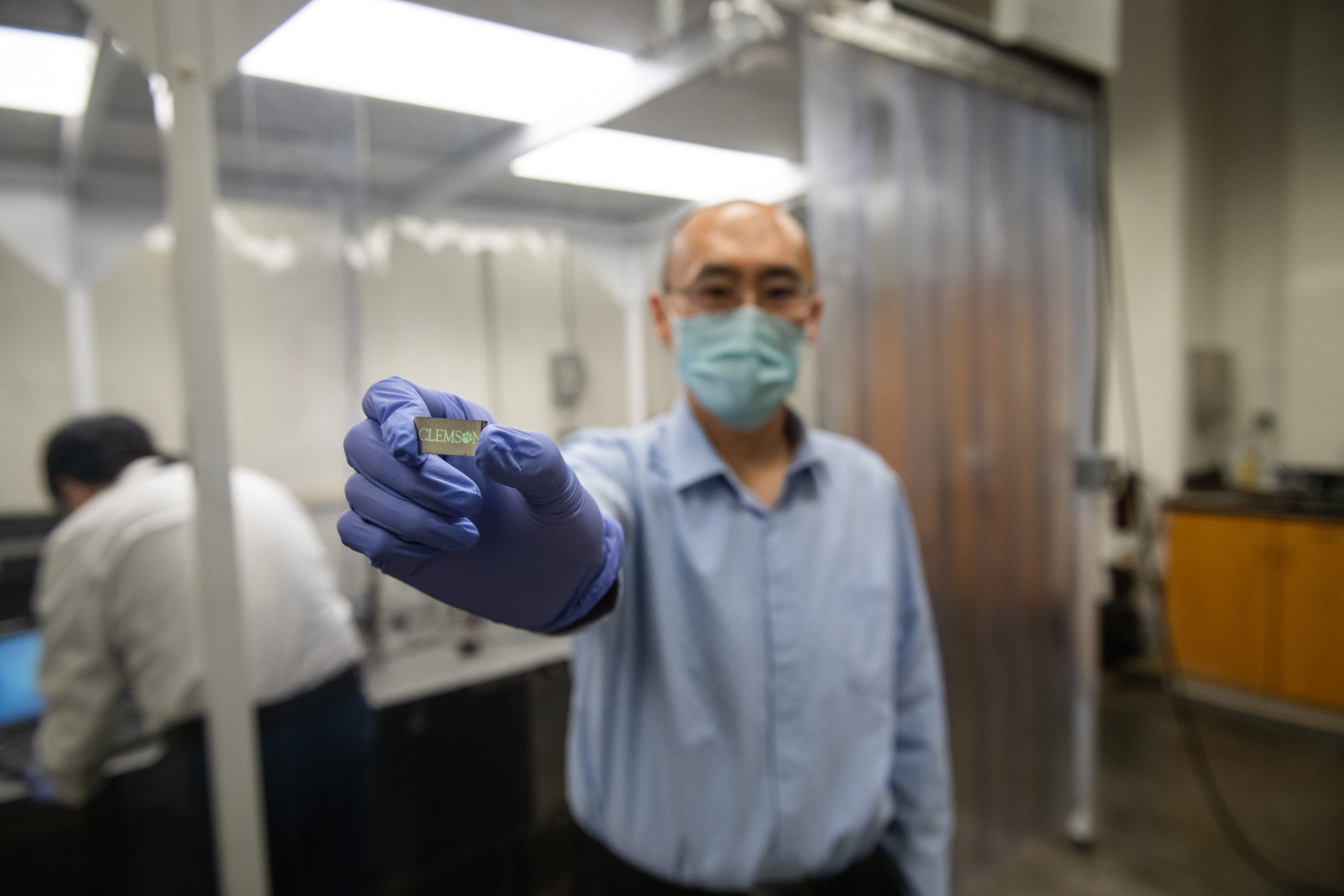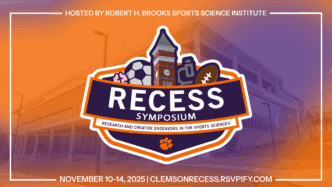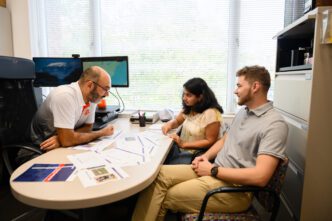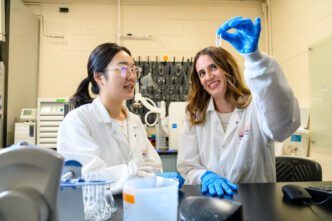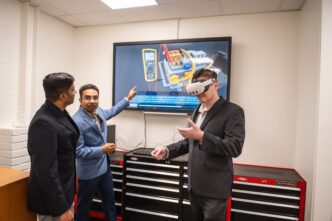Wearing orange-tinted safety glasses, Dr. Xin Zhao parted some plastic sheeting and stepped out of a darkened Clemson University clean room, followed by his Ph.D. student, Kewei Li.
Li went to a computer with a purple Tiger paw on the screen and asked, “Ready?”
“OK, let’s go,” Zhao said.
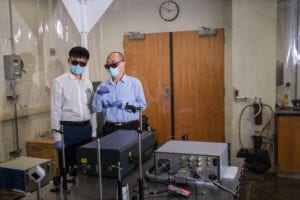
Li hit a few buttons on the computer, and a soft, high-pitched whine filled the room as white light danced on a small rectangle of glass that had been placed under a laser scanner. Within seconds, the Tiger paw from the screen was etched on the glass so finely that a finger running over the surface could barely feel the texture.
Zhao, an assistant professor of mechanical engineering at Clemson, and Li were demonstrating the work they are doing as part of a $606,000 CAREER award that Zhao has received from the National Science Foundation.
Researchers have known since the 1960s that lasers can be used to create micro- and nano-scale surface structures on various materials, including glass, but the mechanism is still not well understood, Zhao said.
With his CAREER award research, he intends to help learn more.
“It will be really exciting to solve this issue– to see what’s really going on when we shoot a laser on the glass, and these super small structures are formed automatically,” Zhao said. “We have the theories, but the theories are not fully validated.”
The structures that Zhao and Li are creating in the lab are inspired by structures found in nature. Lotus leaves repel water, a butterfly’s wings are colorful and a spider’s legs stick to walls, all because of the unique structures on their surfaces.
Zhao said finding answers to his research questions could help open new possibilities in manufacturing glass. For example, it could become possible to make eyeglasses, windshields and windows that don’t fog or ice up. Or it could be possible to make electronic screens that change color, Zhao said.
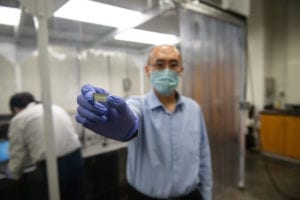
Zhao expects about three graduate students and 10 undergraduate students to be involved in the research. It will give them a chance to work on the cutting edge of technology, helping prepare them for careers in academia or industry.
The team will have the benefit of using some specialized equipment. One camera that Zhao has in his lab allows researchers to see what is happening as the laser cuts the glass down to the nanosecond.
Zhao said Clemson is a good place for his work because the University is directing a lot of effort to research and education in advanced manufacturing.
“Clemson is one of the leading institutes for advanced manufacturing in the state and nationally,” he said. “We have a lot of people working in advanced manufacturing. We have top-notch equipment, but also, most importantly, we have a lot of colleagues working in this area. We can work together. And we have a lot of industry in the area that we can collaborate with.”
Also as part of the CAREER award, Zhao plans to start an “Art of Bio-Inspired Manufacturing” program that will be on display at Greenville’s Artisphere festival to inspire the younger generation’s interest in advanced manufacturing.
Atul Kelkar, chair of the Department of Mechanical Engineering at Clemson, said that Zhao’s CAREER award is well deserved.
“CAREER awards are a strong indicator that a faculty member’s academic career is off to a great start and that he or she will be successful in the future,” Kelkar said. “That’s certainly true of Dr. Zhao. His work brings together teaching and research in advanced manufacturing, an area highly relevant to South Carolina and the nation as a whole. I offer him my deepest congratulations.”

